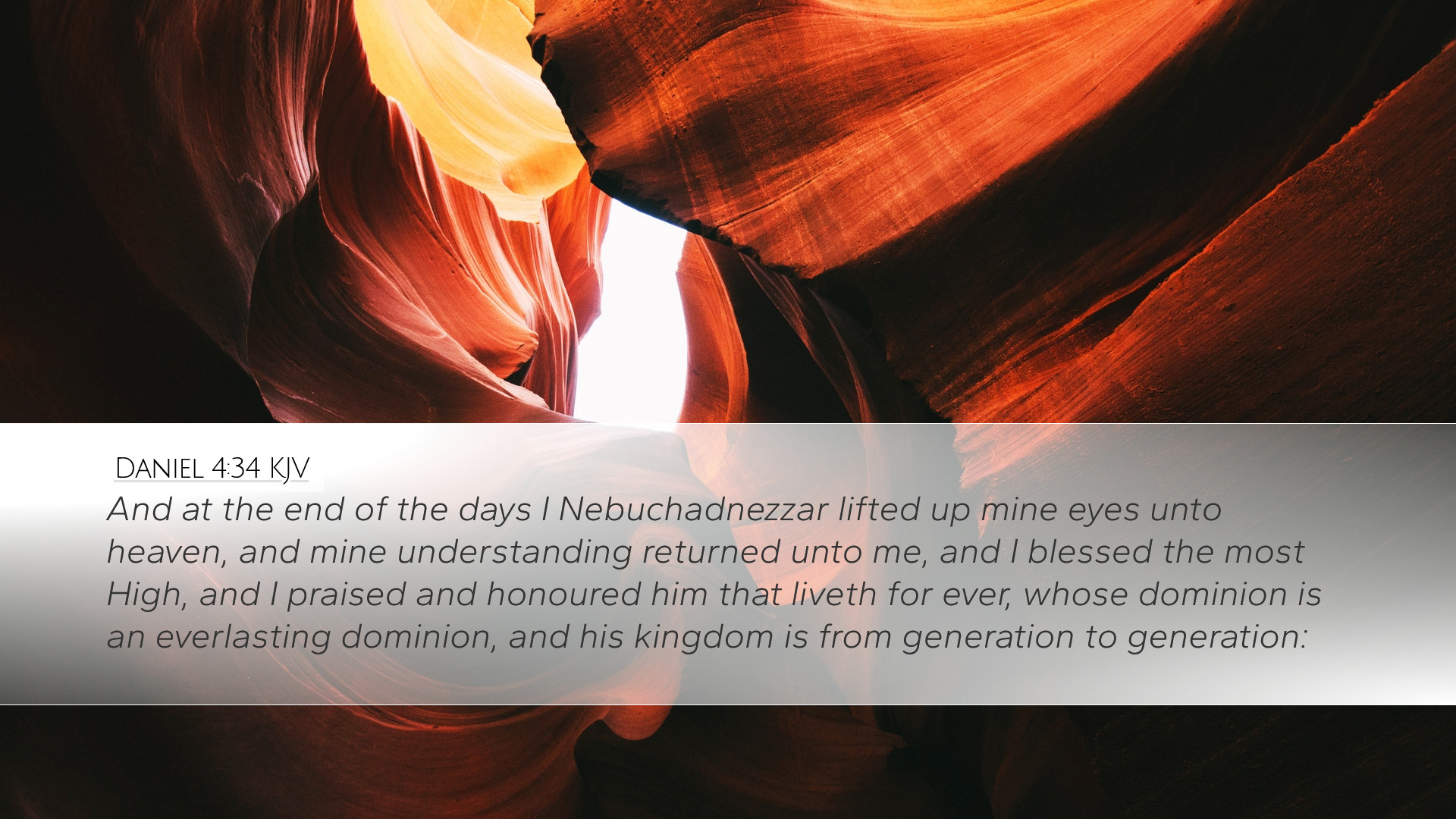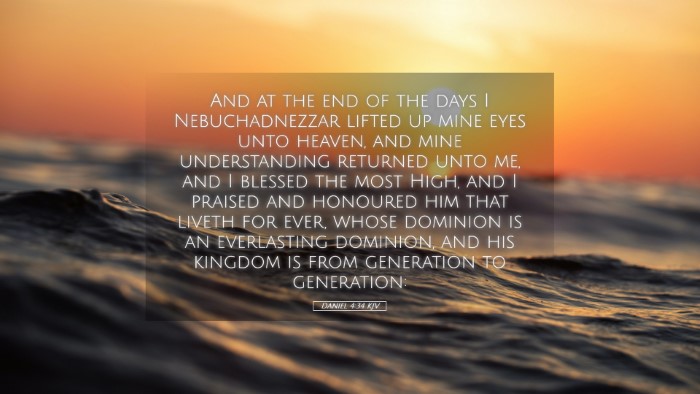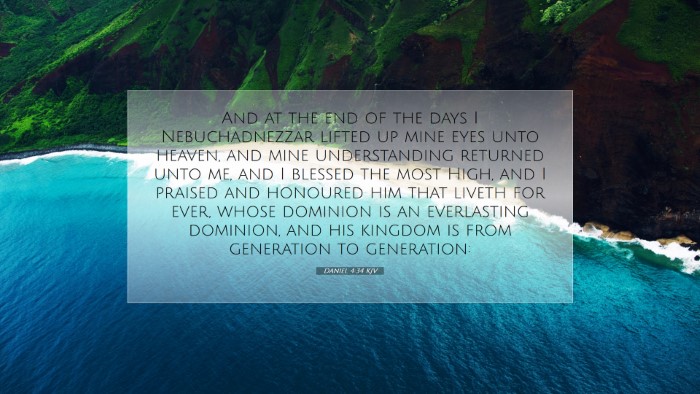Commentary on Daniel 4:34
Daniel 4:34 states: "And at the end of the days I, Nebuchadnezzar, lifted up mine eyes unto heaven, and mine understanding returned unto me, and I blessed the most High, and I praised and honored him that liveth for ever, whose dominion is an everlasting dominion, and his kingdom is from generation to generation."
Overview
This verse occurs at a pivotal moment in the narrative of King Nebuchadnezzar's transformation. After a period of divine punishment, Nebuchadnezzar's recognition of God's sovereignty marks a significant change in his understanding of power and authority.
Contextual Analysis
Historical Background: Nebuchadnezzar's story illustrates the intersection of divine authority and human pride. The King, once arrogant in his self-glorification and oppressive in his rule, experiences a humbling transformation that leads to a profound realization of God's eternal dominion.
Theological Implications: This verse highlights critical theological themes, including the sovereignty of God over earthly kingdoms and the possibility of repentance and restoration for even the most hardened hearts.
Insights from Matthew Henry
Henry emphasizes that this moment of lifting up his eyes signifies a turning point in Nebuchadnezzar's spiritual journey. Where once he looked only to his own power and glory, he now acknowledges the "most High." Henry notes:
- Recognition of God's Majesty: Nebuchadnezzar’s act of blessing the most High signifies a profound acknowledgment of God's supremacy.
- Transformation and Restoration: His understanding returned to him symbolizes the restoration of his faculties, both mentally and spiritually.
- Continual Dominance of God’s Kingdom: The statement that God's dominion is everlasting serves as a reminder to all of humanity about the transient nature of earthly power.
Insights from Albert Barnes
Barnes provides a detailed interpretation of the verse, focusing on the significance of Nebuchadnezzar's praise:
- Divine Resolution: The phrase "my understanding returned unto me" indicates a restoration not only of his mental capacity but also of his moral compass, suggesting past folly has led to a newfound wisdom.
- God’s Eternal Nature: The reference to God's everlasting kingdom positions Him above all earthly rulers, providing an essential theological contrast between human kings and the divine King.
- Public Declaration: By praising God publicly, Nebuchadnezzar becomes a witness to God's mercy and might, highlighting the power of testimony in the believer's life.
Insights from Adam Clarke
Clarke's commentary elaborates upon the personal transformation of Nebuchadnezzar:
- Personal Humility: Clarke notes that this moment reflects a deep humility, a recognition that he was merely a tool in God’s hand.
- Grace and Restoration: The act of blessing God can be seen as an act of grace, highlighting divine mercy that extends even to pagan rulers.
- God's Sovereignty Affirmed: The assertion of God's everlasting kingdom serves as an eternal truth amidst shifting empires, encouraging believers to trust in God's ultimate authority.
Thematic Reflections
This verse encapsulates several overarching themes:
- Repentance: Nebuchadnezzar’s turn toward God signifies the life-altering power of repentance, inviting us to reflect on our own spiritual states.
- The Majesty of God: The emphasis on God’s eternal dominion serves as a perennial reminder of His supreme authority and control over history.
- Transformational Leadership: The narrative serves as a case study for leaders today, prompting them to seek divine wisdom and guidance rather than relying on human strength.
Conclusion
Daniel 4:34 encapsulates a rich tapestry of themes that are vital for pastors, students, theologians, and Bible scholars. Through the experience of Nebuchadnezzar, we are reminded of the necessity of humility, the power of God's sovereignty, and the boundless grace available to us. This testimony not only serves to enhance our understanding of scripture but also calls us to live in recognition of the true King whose dominion is forever.


